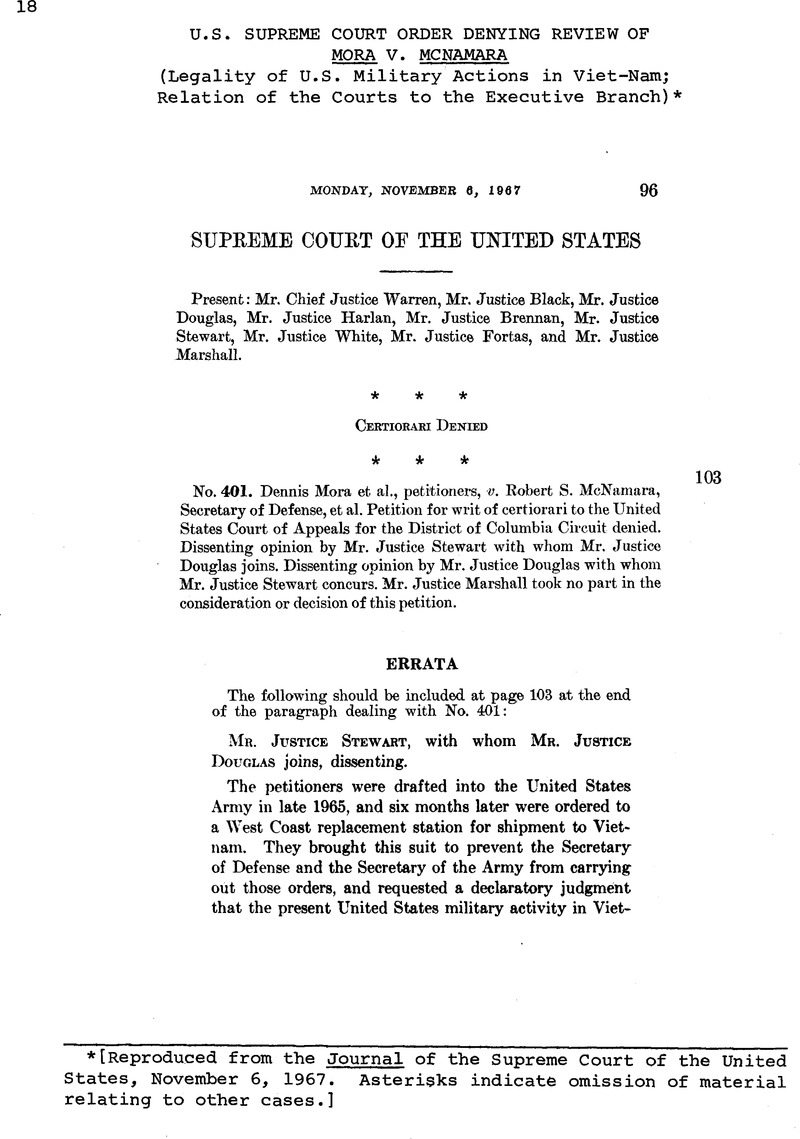No CrossRef data available.
Published online by Cambridge University Press: 20 March 2017

[Reproduced from the Journal of the Supreme Court of the United States, November 6, 1967. Asterisks indicate omission of material relating to other cases.]
1 Hearings on S. Res. No. 151, 90th Cong., 1st Sess. (1967).
2 [1955] 6 U. S. T. 81, T. I. A. S. No. 3170.
3 78 Stat. 384.
4 Hearings, on S. Res. No. 151, supra, n. 1, at 145.
5 Id., at 145.
6 Id., at 80–81.
7 15 Papers of Jefferson 397 (Boyd, ed., Princeton 1955)Google Scholar. In the Federalist No. 69, at 465 (Cooke ed. 1961), Hamilton stated:
“The President is to be Commander in Chief of the army and navy of the United States. In this respect his authority would be nominally the same with that of the King of Great Britain, but in substance much inferior to it. It would amount to nothing more than the supreme command and direction of the military and naval forces, as first General and Admiral of the Confederacy; while that of the British King extends to the declaring of war and to the raising and regulating of fleets and armies; all which by the Constitution under consideration would appertain to the Legislature.”